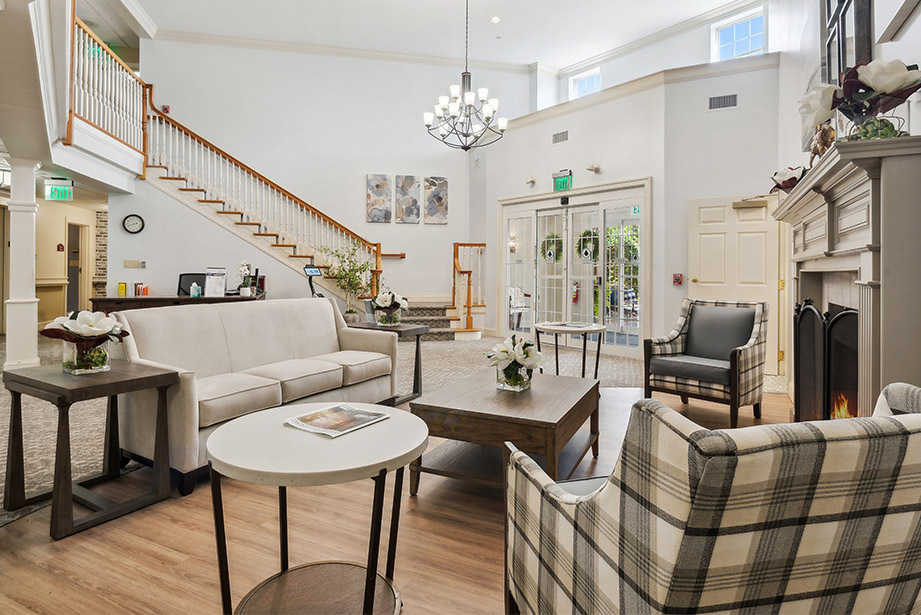When considering care options for aging loved ones, the terms “assisted living,” “personal care,” and “memory care” often arise. While these terms may seem interchangeable, they represent distinct levels of care and services. In Pennsylvania, the regulations governing assisted living and personal care have evolved, creating nuanced differences.
By understanding each lifestyle option’s unique features and benefits, you can make informed decisions to ensure the best possible care for your loved ones.
What Is Assisted Living?
Assisted living communities in Pennsylvania offer a comprehensive range of services designed to support individuals who require assistance with activities of daily living while maintaining independence. Key features of assisted living include:
- Basic services: Assisted living provides essential services such as meal preparation, medication administration, bathing, dressing, and assistance with mobility.
- Supplemental services: To address evolving care needs, assisted living communities are required to offer or arrange for supplemental services like hospice care, specialized cognitive support, physical and occupational therapy, and skilled nursing care.
- Physical accommodations: Assisted living communities must adhere to specific physical standards, including minimum room sizes, private bathrooms with emergency notification systems, and access to common areas.
- Staffing and training: Assisted living communities are required to have a licensed nurse on duty or on call, a registered dietician, and direct care staff trained in dementia care and general health and safety protocols.
- Activities and personal decision-making: Assisted living communities typically offer a variety of activities and support residents in making personal decisions about their care.
- Transportation services: Many assisted living communities provide transportation services for residents to attend appointments, outings, or social events.
What Is Personal Care?
Personal care homes in Pennsylvania offer a more focused level of care compared to assisted living communities. Key aspects of personal care include:
- Core services: Personal care primarily assists with daily living activities such as bathing, dressing, and medication administration.
- Supplemental services: While not mandated, personal care homes may offer supplemental services, but residents with increased care needs might need to transition to a higher-level care facility.
- Physical accommodations: Personal care homes generally have less stringent physical requirements than assisted living, including smaller room sizes and potentially shared bathrooms.
- Staffing and training: Personal care homes may employ nurses and dieticians, but these are not mandatory requirements. Staff training standards are less comprehensive than those in assisted living.
- Activities and personal decision-making: Personal care homes may offer activities and support residents in making personal decisions, but the extent of these services may vary.
- Transportation services: Transportation services may be available in personal care homes, but this is not a guaranteed feature.
What Is Memory Care?
Memory care communities are specifically designed to cater to individuals with cognitive impairments such as Alzheimer’s disease and dementia. Key characteristics of memory care include:
- Specialized care: Memory care facilities provide specialized care and support tailored to the unique needs of individuals with cognitive decline.
- Secure environment: Memory care facilities often have secure environments to ensure the safety of residents.
- 24/7 supervision: Residents in memory care facilities receive 24/7 supervision and support.
- Specialized activities: Memory care facilities offer a variety of activities designed to stimulate cognitive function and promote social engagement.
- Staff training: Staff in memory care facilities are trained in dementia care and understand the challenges faced by individuals with cognitive impairment.

Factors to Consider When Choosing Level of Care
Selecting the right care option for your loved one involves careful consideration of several factors.
Level of Care Needed
The most crucial factor in determining the appropriate level of care is your loved one’s specific needs.
Assisted living is best for those who require assistance with daily living activities but can still maintain a degree of independence. It is not appropriate for those with advanced cognitive impairment or severe medical conditions.
Personal care offers a more focused level of care for individuals who need assistance with daily living but do not require extensive support. It is also not suitable for individuals with advanced cognitive impairment.
Memory care is specifically designed to serve individuals with cognitive impairments such as Alzheimer’s disease and dementia. It provides specialized care, supervision, and support tailored to each individual’s unique needs.
Financial Aspects
The cost of care can vary significantly depending on the level of support required, the location, and the amenities offered. It’s important to note that more advanced care options like memory care typically have higher costs. However, these specialized services are often essential for individuals with advanced cognitive impairment and can significantly improve their quality of life.
Here are some ways families can finance their loved one’s care:
- Insurance coverage: Review your health and long-term care insurance policies to determine available coverage.
- Government assistance programs: Research government assistance programs, such as Medicaid, that may help offset the cost of care. Medicaid is a joint federal-state health insurance program that provides coverage for low-income individuals and families.
- Veterans’ benefits: If your loved one is a veteran, explore VA benefits that may be available to assist with care costs.
- Long-term care insurance: Consider purchasing long-term care insurance to help cover future care costs.
- Personal savings and investments: Utilize personal savings and investments to contribute towards care costs.
- Reverse mortgages: Explore the option of a reverse mortgage to access equity in your home.
Location
Proximity to family members and friends can greatly impact the quality of life for residents. Choosing a senior community that’s accessible for regular visits can provide emotional support and maintain strong family connections with loved ones.
Services & Amenities
Every community is different, so it’s important to visit any community you’re considering to get an idea of their specific services and amenities. Consider:
- Essential services: Ensure that the community provides the necessary services to meet your loved one’s needs, such as assistance with daily living activities, medication management, and meal preparation.
- Additional services: Consider whether the community offers services like transportation, social activities, and specialized programs.
- Amenities: Evaluate the amenities offered, such as common areas, outdoor spaces, and recreational facilities.
- Staff qualifications: Ensure that the staff is well-trained and experienced in providing the appropriate level of care.
- Community atmosphere: Visit the community to assess the overall atmosphere and whether it aligns with your loved one’s preferences and needs.
How to Support the Unique Care Needs of Your Loved One
Caring for an aging loved one can be a significant responsibility. Understanding the differences between assisted living, personal care, and memory care is essential to selecting the most appropriate option. Each level of care offers unique benefits tailored to specific needs.
Woodbridge Place is a personal care and memory care community located in the serene Valley Forge area of Chester County, Pennsylvania. Our community is dedicated to providing high-quality care and security to help make each day rewarding and fulfilling for our residents.
By carefully considering your loved one’s needs and exploring available options, you can make informed decisions to ensure their well-being and quality of life. To learn more about Woodbridge Place and how we can support your loved one, please contact us to schedule a visit.










